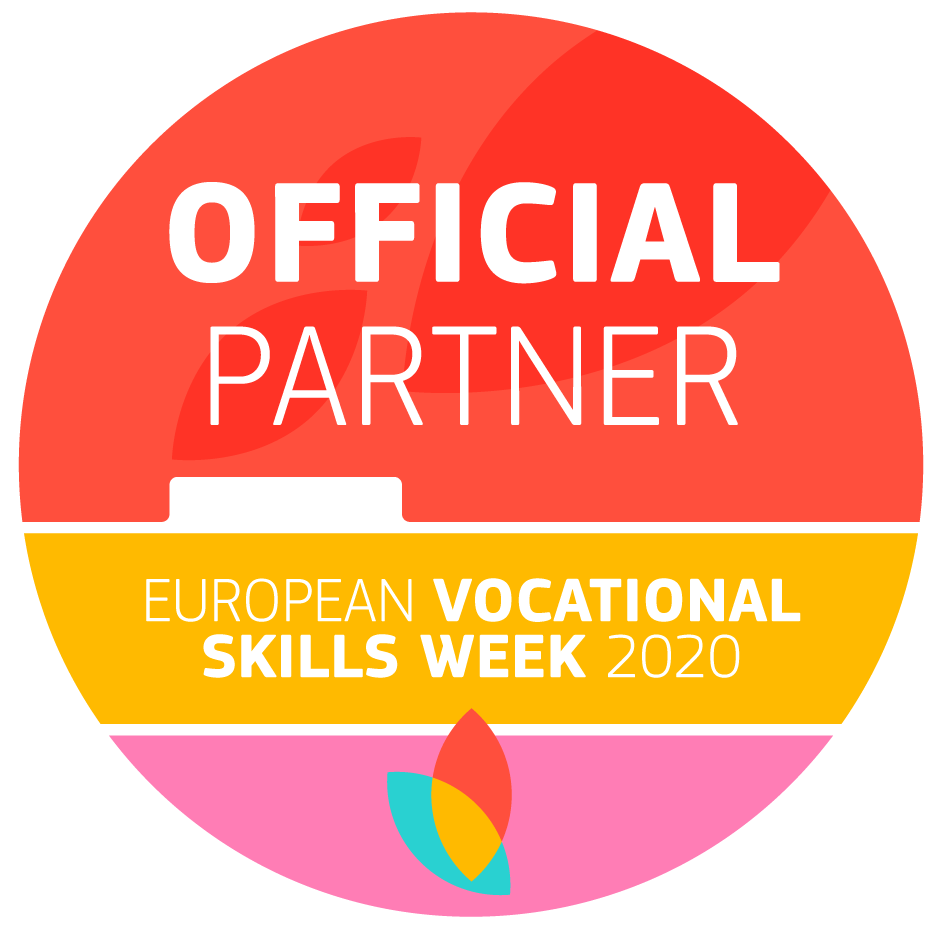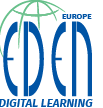
- This event has passed.
European Vocational Skills Week 2020 – VET and digital tools
October 15, 2020 @ 00:00
WATCH THE RECORDING VIEW THE PRESENTATIONSFormat: Presentation and panel discussion
Description: The session presents case studies applied to VET and based on work based learning and training, recognition of competences with employers and training providers and innovative practices in apprenticeships based on the use of digital tools. Two of the presenters are members of two expert providers groups (EURASHE and EUproVET) of Platform of European Associations of VET Providers of DGEMPL and of the VET4U2 group. The third presenter has worked across education and training sectors with experience in dealing with different stakeholders. The session may represent cues to future cooperation between associations dealing with VET and with online teaching and training.
The session presents case studies applied to VET and based on work based learning and training, recognition of competences with employers and training providers and innovative practices in apprenticeships based on the use of digital tools. Two of the presenters are members of two expert providers groups (EURASHE and EUproVET) of Platform of European Associations of VET Providers of DGEMPL and of the VET4U2 group. The third presenter has worked across education and training sectors with experience in dealing with different stakeholders. The session may represent cues to future cooperation between associations dealing with VET and with online teaching and training.
Moderator: Alfredo Soeiro
Alfredo Soeiro
EDEN Executive Committee member, EDEN Senior Fellow,
University of Porto, Portugal
Alfredo Soeiro holds a degree in civil engineering from University of Porto, a Ph.D. from the University of Florida. He was pro-rector of the University of Porto for Continuing Education between 1998 and 2003. Dr. Soeiro was a founding member of EUCEN (European University CE Network); RECLA (Latin American CE Network), and AUPEC (Portuguese University CE Association) His positions held were the vice presidency of EUCEN, vice-presidency of SEFI, president of IACEE, president of AUPEC and president of SEFI. His main interests are engineering education, continuing education and online learning, focusing on networking, international cooperation and student evaluation. He has also been an evaluator for the professional engineering association, was invited in several projects as external evaluator and has participated and coordinated some European projects on quality assurance of education.
Panelists: Timothy Read
Timothy Read
EDEN Vice-president
Senior Lecturer, Department of Computer Languages and Systems, UNED
Timothy Read is a Senior Lecturer in the Department of Computer Languages and Systems at UNED. He did his first degree in Real Time Computer Science at the University of The West of England and his Doctorate in Cognitive Science at the University of Birmingham (United Kingdom). After leaving England, he worked at the University of Granada before moving to UNED in Madrid. He is the co-founder of the ATLAS research group and has directed several national and international funded projects on applying Information and Communication Technologies to Languages for Specific Purposes. He is currently working in the areas of Mobile-Assisted Language Learning and Language Massive Open Online Courses, and their applications for social inclusion and employability, and the role of analytics in these areas. He has also been a member of diverse scientific committees and has collaborated as an evaluator of national and international research project proposals. As well as his academic career, he has worked in different international companies including Rolls Royce (the work he undertook there was subsequently patented), Hewlett Packard, and the telecommunications company I.T.T. In 2015, he was awarded the title of EDEN Fellow from the Executive Committee of the European Distance and E-Learning Network in recognition of the work he has undertaken in this area.
Title: The need for the agile cross-institutional recognition and validation of prior learning: fear, uncertainty, and doubt! What the ECCOE system has to offer
Summary: The European Commission has noted the difficulties that limit the cross-institutional recognition of higher education and upper secondary diplomas. Any automatic mutual recognition that they might highlight as being desirable still seems a long way off, even though the advantages are clear both for students and institutions. As an important step towards such a solution to this problem, the ECCOE system (European Credit Clearinghouse for Opening up Education), represents an attempt to facilitate the endorsement and appropriation of open, online and flexible higher education by increasing trust in technology-enabled credentials among students, higher education institutions (HEIs) and employers. The role of Model Credit Recognition Agreements (MCRAs) will be discussed together with aspects of their use that have emerged from the first round of an in-house peer review of their functionality. A reflection will follow on what might be needed for a successful future wide-spread adoption of the ECCOE system.
 Alicia Miklavčič
Alicia Miklavčič
EURASHE
Alicia Leonor Sauli Miklavčič is Head of Development at the Slovene Association HVC, a member of the EURASHE Board and Working Group on Employability & LLL, an expert on Short Cycle Higher Education. She established the first Slovene ERASMUS Placement Consortium, the Slovene ERASMUS PHE Alumni Club and ERASMUS PHE Teacher & Staff Club and contributed to the selection of Wood Technology School Maribor, Higher Vocational College as Erasmus Success Stories 2012 by the European Commission.
Title: Smart e-Quality@WBL
Summary: An innovative digital management tool developed under the auspices of the Apprentice Track project will be presented. The prototype enables management of identity, apprenticeship design, recording details of placements, assigning and documenting learning activities during placement, monitoring progress per competence, feedback & evaluation, assessment and reporting, as well as database of final credentials. The presentation will include a good practice of distant apprenticeship as well as the final conclusions of the survey among students and teachers on distance learning during the Covid19 lockdown.
 Matti Isokallio
Matti Isokallio
EUproVET
Matti Isokallio has been in different positions in the field of education more than 20 years. He worked in regional University of Applied Science more than a decade. At that period, he was ECTS and Diploma Supplement Counsellor supporting implementing the Bologna process in European level and in national level. Currently he is director of regional VET provider and president of EUproVET, one of the European VET provider associations. Isokallio chairs international WG of AMKE. AMKE is Finnish VET providers association.
Title: Innovative teaching and guidance provision, case Finland
Summary: Finland has combined all VET legislation in one law since 2018. In vocational education and training, work-based learning is planned as part of the student’s personal competence development plan. For work-based learning, students have either an apprenticeship agreement or a training agreement. This has put VET providers in a challenging position to offer high quality teaching and guidance in all forms including digital teaching and guidance.
